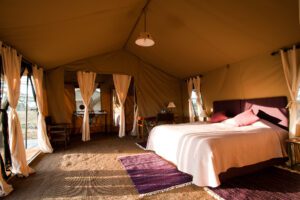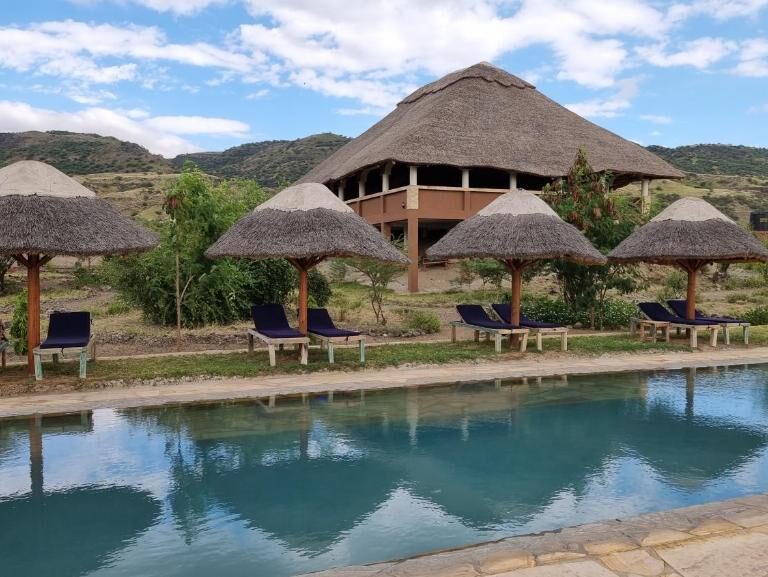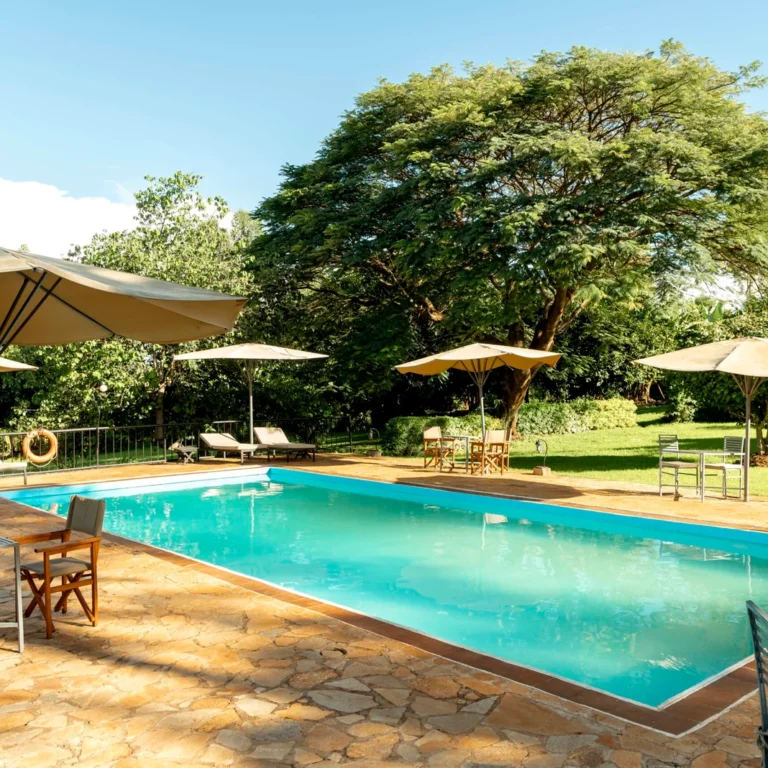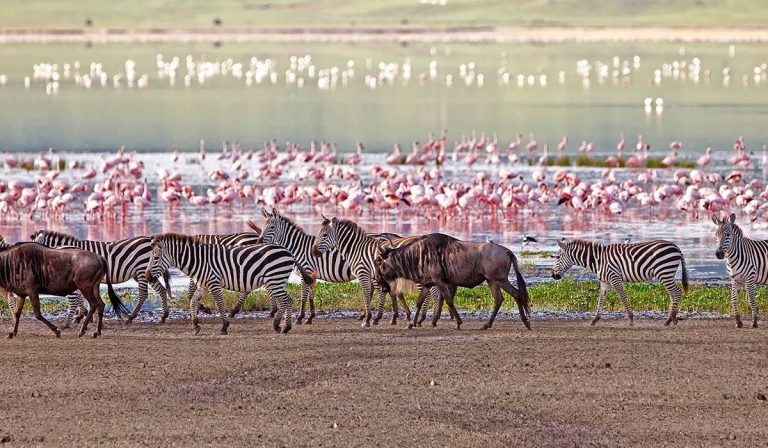The idea of a family safari in Tanzania often conjures images of awe-struck children watching a lion pride from the safety of a Land Cruiser, or spotting a baby elephant trailing its mother through the Serengeti. But for many parents, these dreams are accompanied by a series of practical concerns. Is it truly safe to take kids on a Tanzanian safari? The answer, overwhelmingly, is yes—provided you are well-prepared and follow some key guidelines with proper planning and precautions, but age is a key consideration, especially regarding malaria risk. Choose family-friendly lodges and reserves, select malaria-free areas for young children, ensure you follow guides’ instructions, use mosquito repellent and protective clothing, pack for the heat, and consult a doctor about necessary vaccinations and malaria medication. A well-planned safari can be an unforgettable, educational, and safe adventure for the whole family.
1. Malaria Risk: Understanding and Mitigating the Threat
Malaria is often the top concern for parents considering a safari in Tanzania. It’s a valid concern, but with the right precautions, the risk can be significantly minimized. Many parts of Tanzania, especially at higher altitudes, have a lower risk of malaria. The key is to consult with a doctor or a travel clinic well in advance of your trip. They will advise on the most suitable anti-malarial medication for your children, taking into account their age and the specific areas you plan to visit. It’s crucial to follow the prescribed dosage and schedule precisely, both before, during, and after your trip.
2. Vaccinations: Protecting Your Family
Beyond malaria, ensuring your children are up-to-date on routine vaccinations is a must. Your doctor will also recommend other vaccinations based on your travel plans, such as Hepatitis A and Typhoid. Yellow Fever vaccination is a requirement for travelers arriving from or transiting through countries with a high risk of the disease. While Tanzania itself is not a high-risk country, you may need a Yellow Fever certificate depending on your flight path. Always check the latest requirements with your country’s embassy or the Tanzanian embassy.
3. Mosquito Protection: The First Line of Defense
Anti-malarial medication is not a substitute for mosquito protection; it’s a supplement. The primary goal is to prevent mosquito bites in the first place. Dress your children in long-sleeved shirts and trousers, especially during dawn and dusk when mosquitoes are most active. Use a high-quality insect repellent containing DEET, Picaridin, or IR3535. For children, follow the instructions on the product label carefully, and apply it over their clothes rather than directly on their skin where possible. Most safari lodges and camps provide mosquito nets over beds, but it’s always a good idea to check this with your tour operator beforehand.
4. Other Health Precautions: Staying Healthy in the Bush
Preventing traveler’s diarrhea is another important health precaution. Ensure your children only drink bottled or filtered water and avoid tap water, including for brushing teeth. Be cautious with ice in drinks and uncooked food, especially salads or fruits that cannot be peeled. Pack a basic first-aid kit with pain relievers, antiseptic wipes, bandages, and any specific medications your child might need. It’s also wise to bring a hand sanitizer and encourage frequent handwashing.
5. Sun and Heat: The Elements of the Savannah
The Tanzanian sun can be intense. Protecting your children from sunburn and heatstroke is essential. Pack wide-brimmed hats, sunglasses, and high-SPF sunscreen. Reapply sunscreen regularly, especially after sweating. Keep your kids hydrated by encouraging them to drink plenty of water throughout the day. Many safari vehicles have pop-up roofs for game viewing, so it’s easy to get direct sun exposure. Take breaks in the shade when possible and be mindful of the heat.
6. Age Appropriateness: When is the Right Time to Go?
There is no universal “right age” for a safari, as it depends on the child’s temperament and the family’s expectations. Many tour operators recommend a minimum age of 6 or 7. Younger children may find the long game drives and early morning starts challenging. They may also struggle with the need to be quiet and still in the vehicle for extended periods. Older children and teens, on the other hand, can fully appreciate the wildlife, culture, and adventure. A good rule of thumb is to consider if your child can sit quietly for an hour or more and if they have a genuine interest in animals.
7. Choosing a Destination: Family-Friendly Parks
Tanzania offers a diverse range of safari destinations. The northern circuit, including the Serengeti, Ngorongoro Crater, and Tarangire National Park, is the most popular and is well-equipped for families. These parks offer a high density of wildlife and a variety of lodging options. The Ngorongoro Crater, in particular, offers a “big five” experience in a single day, which can be great for children with shorter attention spans. For a more relaxed, less crowded experience, consider a safari in a private conservancy or a less-frequented park.
8. Accommodation: Comfort and Safety
Many safari lodges and camps are designed with families in mind. Look for lodges that offer family-sized tents or interconnected rooms. Some even have swimming pools, which are a great way for kids to cool off and burn off energy after a game drive. Check if the accommodation is fenced or has security measures to prevent animals from wandering into the guest areas. Most will have staff to escort you after dark. You should prioritize selecting reputable tour operators and choosing family-focused accommodations that may include amenities like family rooms or private areas. While the country is stable and welcoming, especially in the protected safari areas, it’s crucial to follow safety guidelines from your guide and be aware of age restrictions for certain activities, such as longer game drives or walking safaris.
9. Activities: Tailoring the Experience
The key to a successful family safari is a flexible itinerary. While game drives are the main attraction, many family-friendly operators offer other activities. Look for lodges that provide nature walks with a guide, cultural visits to local Maasai villages, or even cooking classes. These activities break up the long hours in the vehicle and provide a more immersive experience for children. Some operators also offer “junior ranger” programs, which are a fantastic way to engage kids and teach them about conservation.
10. Follow Guide Instructions: The Golden Rule
Your safari guide is a professional with extensive knowledge of the wildlife and the local environment. Their instructions are paramount for your family’s safety. Emphasize to your children the importance of listening to the guide at all times. This includes staying inside the vehicle unless instructed otherwise, refraining from making loud noises that might scare or agitate animals, and never approaching an animal on foot. By selecting age-appropriate destinations, activities, and accommodations, you can create a trip that is safe, engaging, and enriching for children of all ages. Whether it’s their first glimpse of a lion in the wild or visiting a local school, a safari offers experiences that will stay with them for a lifetime.
11. Choose a Family-Friendly Operator: The Best Partner for Your Trip
Selecting a reputable and family-friendly tour operator is perhaps the most critical step. A good operator will have experience planning safaris with children. They can recommend suitable destinations and accommodations, and they will be flexible with the itinerary to accommodate your family’s needs. Ask about their child safety policies, guide training, and vehicle safety. They should be able to provide references from other families who have traveled with them. For family-friendly operators in Tanzania, consider companies like Foot Slopes Tours and Safaris for sustainable, high-end experiences, for family-focused trips, or a specialist that offers tailored family safari holidays and has experience with children. When choosing an operator, look for one with a track record of family safaris, as they can help customize itineraries for children’s ages and interests, and always check if the operator is experienced in handling potential health concerns like malaria, which can be a factor for young children.
12. Pack Essentials: Don’t Forget the Small Things
Beyond the health and safety essentials, packing the right gear can make a big difference. Binoculars for each child, a camera, a notepad for them to jot down their sightings, and some small games or books for downtime will keep them engaged. A good backpack for daily excursions, reusable water bottles, and comfortable, layered clothing are also must-haves. To travel on a Tanzania safari with children, plan around their ages, focusing on child-friendly lodges with amenities like kids’ clubs, and consider a private vehicle for flexibility. Consult your doctor for health advice, ensure a relaxed itinerary with plenty of downtime, and bring entertainment for long drives. Prepare for the travel, especially during the dry season, and don’t forget health precautions, such as sun protection and insect repellent.
13. Best Time to Take Children on a Tanzania Safari
Choosing the right time of year for your family safari can significantly enhance the experience. The dry season, from June to October, is generally considered the best time. During these months, there is little to no rain, the weather is cooler, and the animals congregate around water sources, making them easier to spot. This is also when the Great Migration’s dramatic river crossings occur in the Serengeti. For families with very young children, who might be sensitive to heat, the “short dry season” in January and February is also an excellent option. While it can be hotter, it’s a time of calving in the southern Serengeti, which means you can witness a beautiful spectacle of new life. The landscape is lush and green, and there are fewer tourists, making for a more peaceful experience.
Can Kids Go On Safari In Tanzania?
Yes, kids can go on safari in Tanzania, especially those aged 6 and older, but it requires careful planning and consideration for the child’s age and health. Tanzania is an excellent destination for families, offering all-inclusive family african safari, incredible wildlife viewing, and cultural experiences. However, for Tanzania Family safari packages, because it’s in Africa’s malaria belt, health precautions like malaria prophylaxis and mosquito repellent are crucial, particularly for younger children. Planning for a private safari, choosing kid-friendly activities, and being mindful of specific age restrictions for things like walking safaris will help ensure ready-made family safari holiday packages a safe and memorable adventure.
Can you take babies on safari? everything you need to know
Yes, you can take babies on safari, but it requires careful planning, including choosing baby-friendly lodges in malaria-free areas, securing a private vehicle, and packing essential baby gear. Expect to adjust schedules for feedings and naps, and consider lodges with babysitting services for adult-only game drives. African Family Safaris & Tours safety is paramount, so stay inside your vehicle at all times, use sun and insect protection, and consult with a doctor about necessary vaccinations and malaria precautions for your child.
How many days is too long on safari with kids (10 + 12)?
For children aged 10 and 12, a safari of 3-5 days is often a good “sweet spot,” though longer itineraries of 7-10 days can also work if varied with activities beyond just game drives. The unforgettable Tanzania Family Safari Packages key is to break up long periods of game viewing with other experiences, such as visiting lodges with pools and wifi, including cultural activities, hikes, or beach time in Zanzibar. More than 3-4 days of continuous, game-drive-only viewing is likely too long for kids and can lead to boredom and fatigue.
How Safe is an African Safari for Kids?
An African safari is generally safe for kids, especially when using reputable tour operators and staying in family-friendly accommodations with strict safety protocols and experienced, trained guides. Key Tanzania Family Safari Holidays safety measures include choosing malaria-free reserves for younger children, listening to and following all guide instructions, never leaving the vehicle or lodge without permission, and securing accommodations at night.
The Ultimate Guide to Taking Kids on Safari Holidays
The ultimate guide to taking kids on safari holidays starts with choosing the right destination—opt for family-friendly, malaria-free reserves. Select lodges with child-focused activities, safety measures, and flexible meal times. Plan shorter game drives, and pack essentials like snacks, sun protection, binoculars, and games. Educate kids about wildlife and safety before the trip. Balance adventure with downtime to avoid overstimulation. Engage them with animal checklists or nature scavenger hunts. With the right preparation, a safari becomes an unforgettable, fun-filled learning journey for the entire family—sparking curiosity, connection, and a lifelong love for nature.
Going on a Safari with Kids: Is It Recommended?
Going on a safari with kids is absolutely recommended—with the right planning. It offers a unique chance for children to connect with nature, learn about wildlife, and experience real adventure. Choose age-appropriate lodges, shorter game drives, and malaria-free areas for safety and comfort. While it requires flexibility and preparation, the rewards are unforgettable family memories, bonding time, and inspiring curiosity about the natural world. A safari can be both safe and magical for kids of all ages.
Safari with children: how to ensure safety
To ensure safety on safari with children, choose reputable, family-friendly lodges in malaria-free areas. Always follow the guide’s instructions and never let kids wander alone. Keep them seated and quiet during game drives. Use car seats if available, and pack a first-aid kit, sunscreen, and insect repellent. Educate children on wildlife safety rules before and during the trip. With proper precautions and supervision, a safari can be a safe and enriching experience for the whole family.
In conclusion
A Tanzanian safari with kids is not just safe; it’s a transformative experience. By planning ahead, addressing health concerns with professionals, and choosing the right partners and destinations, you can ensure a smooth, secure, and truly unforgettable adventure for the entire family. The memories your children will make, witnessing the wonders of the African bush up close, will last a lifetime.








